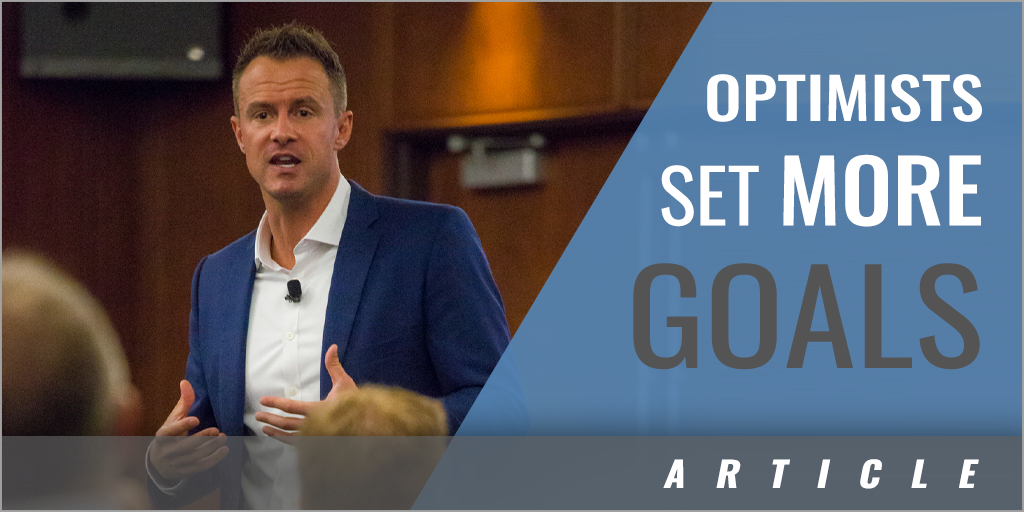|
By: Alan Stein, Jr. Originally Published in: Raise Your Game Confidence comes from an understanding of your own agency, your own influence, and your own ability to make things happen. Bob Rotella is a sports psychologist who has helped everyone from Michael Jordan to Tiger Woods. In How Champions Think: In Sports and In Life, Rotella wrote that the first essential quality of champions is optimism. Think about that: Rotella is working with people at the absolute highest level of their craft, some who are the best in the world at what they do. Yet he still thinks the positive mind-set - more than anything else - is what makes them champions. "If no one thinks your goals are crazy," Rotella wrote, "you're probably not aiming high enough." If you didn't lose the ball, then you didn't learn anything. A positive mind-set spreads: your approach becomes more dedicated, your outlook is more motivated, and your bounceback becomes stronger. Being optimistic is not just some pie in the sky bull or rose-colored glasses or new age fluff. It's scientifically proven to work. "Optimism, it turns out, is a tremendously powerful predictor of work performance," wrote Shawn Achor in The Happiness Advantage. "Studies have shown that optimists set more goals (and more difficult goals) than pessimists, and put more effort into attaining those goals, stay more engaged in the face of difficulty, and rise above obstacles more easily." When we don't do what needs to be done, we launch a cycle. We feel guilty and shameful, which erodes self-confidence. That eroding self-confidence diminishes our energy and motivation. As those decline, our productivity suffers and our attitude drops. This starts the entire cycle over again. The same cycle happens for positivity. Success and confidence breed and feed each other; you have no choice but to start with the one that is in your control. One of the best examples of the power of confidence is the four-minute mile, a mark that all the experts claimed could never be broken. Even scientists said it was physically impossible for man to do. But once Roger Bannister first broke it in 1954, it just kept breaking and breaking. People believed it could happen - so it did. Our minds have enormous power to enlarge or shrink whatever goal we focus on. We can bring our objective closer or push it farther away simply by how we think about it. |






